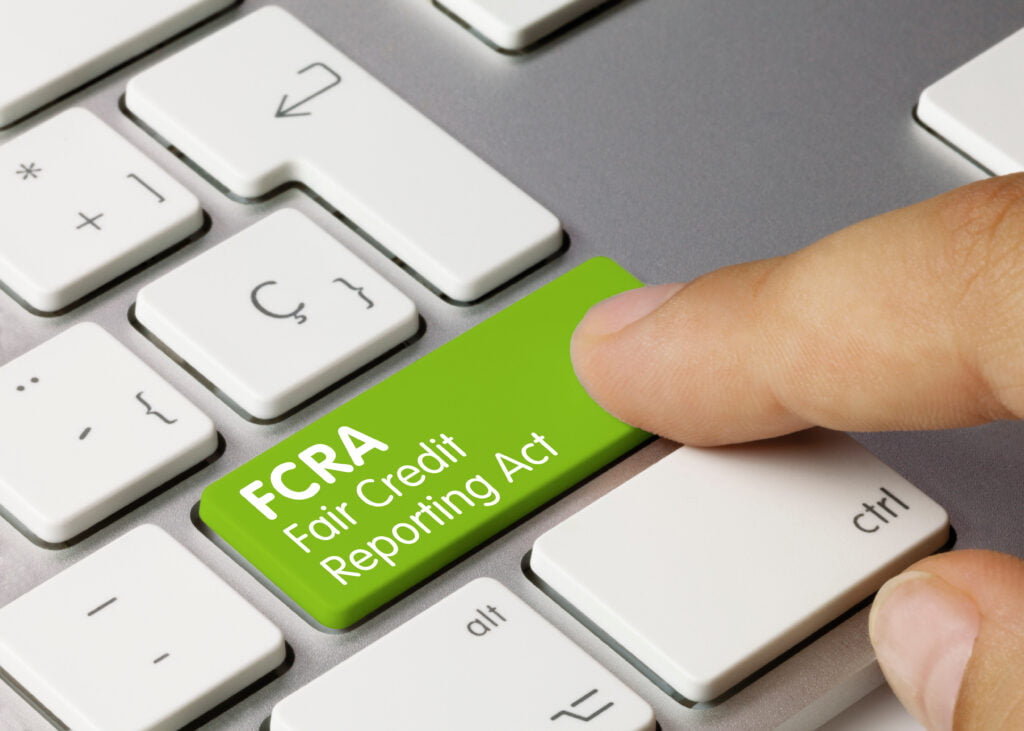
Background checks have become a standard part of the hiring process for many companies. They provide valuable information about a candidate’s criminal history, education, and employment background. However, there are laws and regulations in place to protect both employers and job seekers when it comes to background checks. In this article, we’ll explore the EEOC and FCRA and how they relate to background checks.
What is the EEOC?
The Equal Employment Opportunity Commission (EEOC) is a federal agency that holds the vital role of enforcing a comprehensive set of legislations that have been specifically designed to prevent and eliminate any form of discrimination within the workplace. These important laws encompass various acts, such as Title VII of the Civil Rights Act, the Americans with Disabilities Act (ADA), and the Age Discrimination in Employment Act (ADEA).
With the clear objective of maintaining equality and fairness in the employment sector, the EEOC is steadfast in its commitment to ensuring that employers adhere strictly to the aforementioned laws, thereby preventing any instances of discriminatory practices against both job seekers and employees on the basis of their race, color, religion, sex, national origin, age, disability, or genetic information. By addressing the numerous facets of discrimination, the EEOC actively works towards creating a harmonious work environment that promotes inclusivity and diversity, upholding the principles of equal opportunity for all individuals. Consequently, the EEOC also closely scrutinizes and regulates the use of background checks as part of the hiring process, emphasizing the importance of treating all candidates fairly and objectively.
EEOC Guidelines for Background Checks
The EEOC has issued guidelines for employers to follow when using background checks in the hiring process. These guidelines are meant to prevent discrimination and ensure that all candidates are given a fair chance at employment.
One of the main guidelines is that employers should not use blanket policies that automatically disqualify candidates with criminal records. Instead, they should consider the nature of the offense, how long ago it occurred, and how it relates to the job in question.
For example, if a candidate has a misdemeanor for a non-violent crime from 10 years ago, it may not be relevant to their ability to perform a job in customer service. However, if a candidate has a felony for embezzlement and is applying for a job in accounting, it may be a cause for concern.
The EEOC also recommends that employers give candidates the opportunity to explain any criminal records and consider any evidence of rehabilitation. This allows for a fair and individualized assessment of each candidate.
What is the FCRA?
The Fair Credit Reporting Act (FCRA) is a significant federal law designed to meticulously regulate and oversee various aspects pertaining to the collection, dissemination, and utilization of consumer information, ensuring utmost transparency and fairness. In essence, this comprehensive legislation encompasses a broad range of consumer information practices, including the implementation and management of background checks. It applies not only to a specific group of employers, but it extends its reach to encompass all those employers who, in their diligent pursuit of hiring suitable candidates, rely on competent and reputable third-party consumer reporting agencies to meticulously conduct comprehensive background checks on potential job applicants with a view to making informed and prudent hiring decisions.
Unarguably, the FCRA is steadfast in its commitment to ensure that employers adopt and adhere to specific and well-defined procedures while procuring, acquiring, and subsequently utilizing background checks to make well-founded employment decisions. In light of this, employers are firmly obligated, as per the FCRA’s stringent guidelines, to obtain written consent from the potential candidate prior to initiating the background check process. Moreover, as part of their commitment to maintaining a transparent and equitable system, employers are required to provide candidates with a duly authorized and comprehensive copy of the report in the event that it is utilized in reaching a negative employment decision. This is aimed at safeguarding the rights and empowering candidates, enabling them to be aware of and fully informed about any information that has influenced the employer’s decision-making process.
FCRA Requirements for Background Checks
Under the FCRA, employers must follow specific requirements when obtaining and using background checks. These include:
- Obtaining written consent from the candidate before conducting a background check
- Providing the candidate with a copy of the report if it is used in a negative employment decision
- Notifying the candidate of their rights under the FCRA, including the right to dispute any inaccurate information in the report
- Adhering to strict procedures when taking adverse action based on the results of a background check, such as denying employment or terminating an employee
Do Background Checks Show Warrants?
One common question about background checks is whether they show warrants. The answer is not a simple yes or no. It depends on the type of background check being conducted and the jurisdiction in which the warrant was issued.
A standard background check will typically show any active warrants for the candidate’s arrest. However, if the warrant has been resolved or is no longer active, it may not show up on the background check.
It’s important to note that not all background checks will include a warrant search. Employers must specifically request this information from the consumer reporting agency.
Do High School Diplomas Show Up on Background Checks?
Another common question is whether high school diplomas show up on background checks. The answer is no, they do not. A high school diploma is not considered a public record and is not included in a standard background check.
However, if an employer requests education verification as part of the background check, the consumer reporting agency may contact the high school to verify the candidate’s diploma. This information is typically only provided with the candidate’s consent.
How to Conduct Background Checks in Compliance with EEOC and FCRA
To ensure compliance with the EEOC and FCRA, employers should follow these best practices when conducting background checks:
1. Obtain Written Consent
Before conducting a background check, employers must obtain written consent from the candidate. This consent should be separate from the job application and should clearly state that a background check will be conducted.
2. Provide a Copy of the Report
If the background check is used in a negative employment decision, such as denying employment or terminating an employee, the employer must provide the candidate with a copy of the report and a summary of their rights under the FCRA.
3. Follow Adverse Action Procedures
If the background check reveals information that may lead to an adverse employment decision, the employer must follow strict procedures before taking action. This includes providing the candidate with a pre-adverse action notice, a copy of the report, and a summary of their rights under the FCRA. The candidate must also be given a reasonable amount of time to dispute any inaccurate information in the report.
4. Consider Individualized Assessments
As recommended by the EEOC, employers should consider individualized assessments when using background checks in the hiring process. This means taking into account the nature of the offense, how long ago it occurred, and how it relates to the job in question.
Real-World Examples of EEOC and FCRA Compliance
One example of EEOC and FCRA compliance is the hiring process at a large retail company. The company conducts background checks on all job applicants and follows strict procedures to ensure compliance with the EEOC and FCRA.
Before conducting a background check, the company obtains written consent from the candidate and provides them with a copy of the report if it is used in a negative employment decision. The company also follows adverse action procedures, giving the candidate a reasonable amount of time to dispute any inaccurate information in the report.
Another example is a small tech startup that uses a third-party consumer reporting agency to conduct background checks on job applicants. The company ensures compliance with the FCRA by obtaining written consent, providing a copy of the report if it is used in a negative employment decision, and following adverse action procedures.
Conclusion
In conclusion, it is of utmost importance to acknowledge the significant roles played by both the Equal Employment Opportunity Commission (EEOC) and the Fair Credit Reporting Act (FCRA) in the realm of regulating the utilization of background checks within the hiring process. For employers, adhering to specific guidelines and procedures is not just a recommended course of action, but rather an obligatory responsibility in order to maintain compliance and safeguard the interests of both themselves and potential job seekers. Employing best practices and giving due consideration to personalized assessments are two essential components that employers ought to integrate into their overall approach, as doing so empowers them to utilize background checks in an effective, reliable, and ethical manner throughout the entirety of their hiring process. Learn more at The Screening Source.
